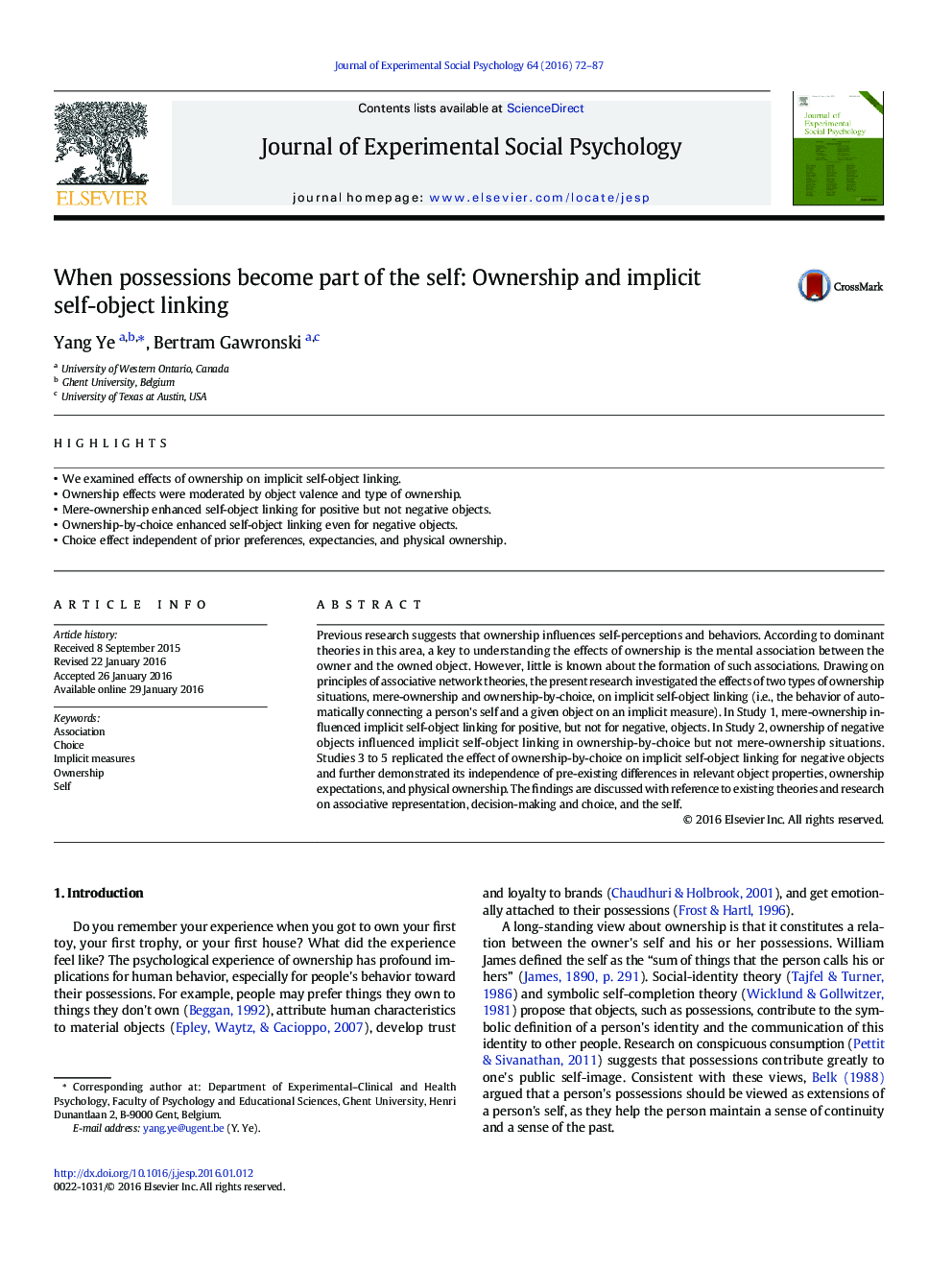| Article ID | Journal | Published Year | Pages | File Type |
|---|---|---|---|---|
| 947696 | Journal of Experimental Social Psychology | 2016 | 16 Pages |
•We examined effects of ownership on implicit self-object linking.•Ownership effects were moderated by object valence and type of ownership.•Mere-ownership enhanced self-object linking for positive but not negative objects.•Ownership-by-choice enhanced self-object linking even for negative objects.•Choice effect independent of prior preferences, expectancies, and physical ownership.
Previous research suggests that ownership influences self-perceptions and behaviors. According to dominant theories in this area, a key to understanding the effects of ownership is the mental association between the owner and the owned object. However, little is known about the formation of such associations. Drawing on principles of associative network theories, the present research investigated the effects of two types of ownership situations, mere-ownership and ownership-by-choice, on implicit self-object linking (i.e., the behavior of automatically connecting a person's self and a given object on an implicit measure). In Study 1, mere-ownership influenced implicit self-object linking for positive, but not for negative, objects. In Study 2, ownership of negative objects influenced implicit self-object linking in ownership-by-choice but not mere-ownership situations. Studies 3 to 5 replicated the effect of ownership-by-choice on implicit self-object linking for negative objects and further demonstrated its independence of pre-existing differences in relevant object properties, ownership expectations, and physical ownership. The findings are discussed with reference to existing theories and research on associative representation, decision-making and choice, and the self.
